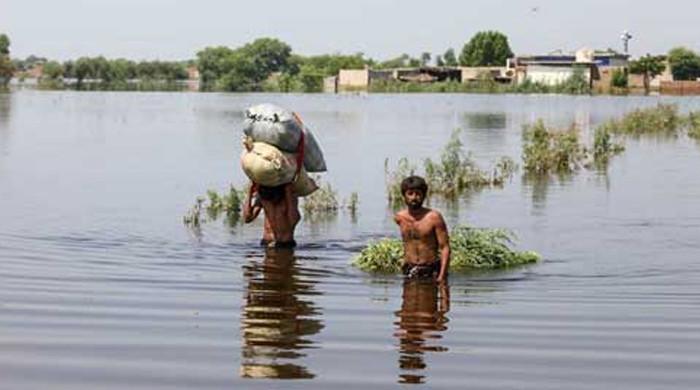COP30: A Climate Expert’s Perspective on Challenges and Opportunities
As COP30 approaches amidst a backdrop of escalating geopolitical tensions, characterized by the rise of right-wing extremism, corporate reluctance, and growing militarization, Ali T Sheikh, a prominent Pakistani expert in sustainable development and climate change, views the upcoming global diplomatic summit with a blend of concern and measured optimism.
Against this intricate scenario, comprehending the operational dynamics of COPs and identifying key participants becomes paramount.
COPs (Conferences of the Parties) serve as pivotal decision-making bodies for international agreements, drawing participation from UN agencies, intergovernmental bodies, and non-governmental organizations as accredited observers. The private sector often integrates with government delegations, albeit without formal observer status.
In this delicate environment, escalating global military expenditure introduces further ambiguity to already strained climate finance commitments.
Sheikh cautioned that this surge in military spending could trigger extensive repercussions. He highlighted that NATO countries had previously consented to elevate their defense expenditure to 5% of their GDP. Sheikh voiced concerns that climate finance would bear the brunt of these decisions, potentially disrupting global stability and reversing three decades of climate cooperation since the inaugural COP.
Following three successive years of oil-producing autocratic states hosting the event, holding climate discussions in Brazil marks a noteworthy transition. Brazil has historically demonstrated robust commitment to indigenous rights, forest preservation, and biodiversity conservation. Sheikh emphasized that Pakistan stands to gain valuable insights from this shift.
However, former President Donald Trump’s address at the United Nations General Assembly, where he denounced climate change as a “con job,” renewable energy as a “joke,” and carbon footprint as a “hoax,” has intensified challenges for countries like Pakistan. Pakistan is ranked among the top ten countries on GermanWatch’s Climate Risk Index 2025, primarily because of substantial economic losses.
Sheikh emphasized that dismissing climate change as a ‘con job’ is a grave denial of reality for developing nations like Pakistan, profoundly impacting their populations.
He added that Pakistan is already experiencing the severe repercussions of climate change. The devastating floods of 2022 and 2025, which submerged a significant portion of the country and displaced millions, serve as stark reminders of the immediate and existential threat posed by climate change.
Sheikh noted the immense economic and human toll, citing that the 2022 floods resulted in over $30 billion in damages and caused significant setbacks for Pakistan.
In response to Trump’s dismissal of green energy, Sheikh underscored the importance of understanding the context for countries like Pakistan.
Sheikh stated that transitioning to cleaner energy and enhancing climate resilience is not merely a political choice but a matter of national survival and economic stability. It is essential for safeguarding the agricultural sector, protecting communities from unpredictable weather patterns, and fortifying urban and rural areas against climate-related disasters.
While strongly disagreeing with Trump’s stance, Sheikh urged Pakistan to adopt a proactive approach rather than simply protesting.
He advised that Pakistan should seek partnerships when attending the event in Brazil, emphasizing the nation’s strengths and successful initiatives, such as Sindh’s housing project for flood victims. He noted the successful evacuation of over 3 million people during recent floods as a significant achievement.
Sheikh also stressed the importance of prioritizing improved construction standards for resilient housing and infrastructure, potentially leveraging AI technologies.
In addition to setting clear priorities, he advocated for a more strategic approach in delegation efforts.
Sheikh observed that Pakistan’s pavilions often cater primarily to domestic audiences. He recommended seeking opportunities to showcase Pakistan’s efforts at pavilions hosted by other countries or organizations to reach broader and more influential audiences.
He also highlighted Brazil’s hosting of COP30 as an opportunity to promote regional climate cooperation, which Pakistan should actively pursue.
Sheikh emphasized that Pakistan’s climate challenges are regional in nature, encompassing heatwaves, glacial lake outburst floods, cloudbursts, and tropical storms. He stressed the importance of dialogue between India and Pakistan, suggesting that even a modest conversation could represent a crucial initial step.
Referring to the Indus Waters Treaty, Sheikh noted the shrinking space for bilateral dialogue and proposed that platforms like COP could offer neutral ground for initiating cooperation on transboundary water management, starting with the exchange of monsoon rainfall data.
Transitioning to climate finance, he stressed the need to view climate investment as an essential investment in the future, particularly for countries like Pakistan with limited resources.
The absence of key players like the US raises concerns about global commitment. Sheikh noted that despite not being physically present at COP29, the US still exerted influence through alliances and financial commitments.
Sheikh stated that the COP presents an opportunity to redeem itself, while acknowledging criticisms of empty promises and the influence of oil money. The event will bring attendees face-to-face with the realities of an impoverished port city, potentially shifting the focus towards justice for nations disproportionately affected by climate change.
Sheikh acknowledged the need for revitalization, noting that COP30 faces heightened expectations. Nations will submit updated emissions reduction targets, and developing countries will seek stronger action on adaptation, loss and damage, mitigation, and climate finance access. Brazil’s role in addressing deforestation, biodiversity, indigenous rights, and climate justice will be closely watched.
However, fulfilling these expectations may prove challenging, with deforestation and new oil drilling activities potentially hindering Brazil’s ability to meet the high bar. Sheikh also pointed to the finance architecture as a persistent obstacle in resolving issues of funding and delivery.
Sheikh cautioned against dismissing COPs as ineffective, emphasizing that they provide valuable opportunities for behind-the-scenes negotiations, informal pledges, and coalition-building.
He noted that this unofficial diplomacy often holds greater significance than formal proceedings, offering compelling insights for observers.



Comments (0)
No comments yet. Be the first to comment!
Leave a Comment